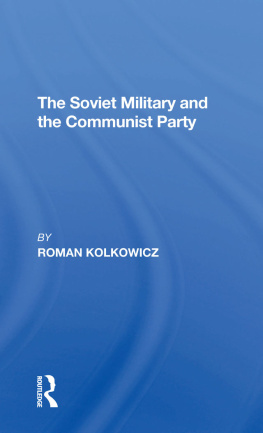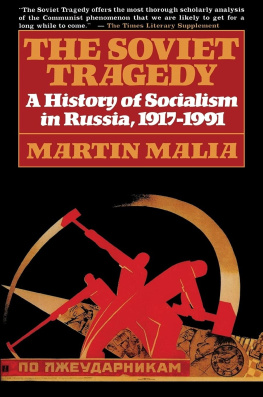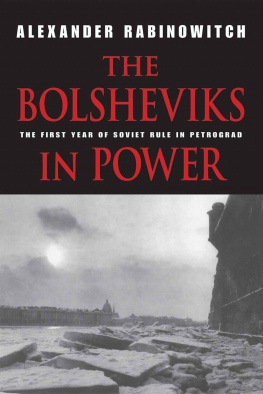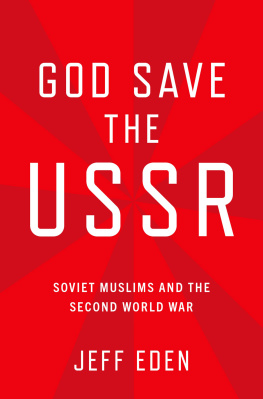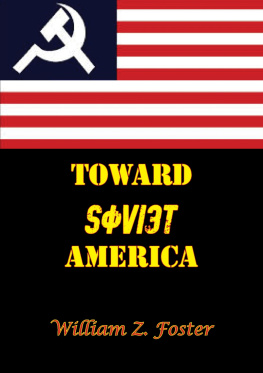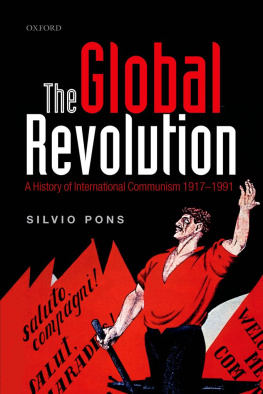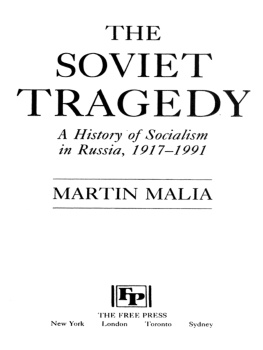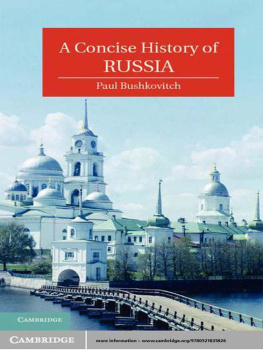
A SACRED SPACE IS NEVER EMPTY
A Sacred Space Is Never Empty
A HISTORY OF SOVIET ATHEISM

Victoria Smolkin
PRINCETON UNIVERSITY PRESS
PRINCETON & OXFORD
Copyright 2018 by Princeton University Press
Published by Princeton University Press,
41 William Street, Princeton, New Jersey 08540
In the United Kingdom: Princeton University Press,
6 Oxford Street, Woodstock, Oxfordshire OX20 1TR
press.princeton.edu
Jacket design by Amanda Weiss
All Rights Reserved
ISBN 978-0-691-17427-3
Library of Congress Control Number: 2018935161
British Library Cataloging-in-Publication Data is available
This book has been composed in Miller
Printed on acid-free paper.
Printed in the United States of America
10 9 8 7 6 5 4 3 2 1
For my family
CONTENTS
ACKNOWLEDGMENTS
EVERY BOOK REQUIRES a tremendous mobilization of resources and supportintellectual, material, and moral. I am grateful to finally have the chance to thank those institutions and individuals that made this book possible.
First, there are the many and diverse forms of intellectual support. This project was born at the University of California, Berkeley, where I was fortunate enough to work with many remarkable and inspiring scholars over the course of my graduate studies, including Thomas Brady, John Connelly, Victoria Frede, Thomas Laqueur, Olga Matich, Yuri Slezkine, Edward Walker, and the late Viktor Zhivov. Thomas Bradys course on Immanence and Transcendence stimulated me to consider how the story of Soviet atheisms attempts to grapple with existential questions is both particular and universal. John Connelly has been a rare model of academic discipline and human empathy. Victoria Frede was generous in sharing her expertise on the intellectual history of Russian atheism. Thomas Laqueurs visionary work was an inspiration. Olga Matich was an invaluable guide into the Russian and Soviet cultural imagination. The late Viktor Zhivov opened up the world of Russian Orthodoxy and inspired me to compare disciplinary regimes, both religious and ideological, across time and space. Edward Walker continuously challenged me to articulate why any of this actually matters. Finally, my advisor, Yuri Slezkine, who has been at the foundation of this project from the beginning, taught me the value of asking big questions and showed me that good history can also be a good story. I am grateful to him for his constant supportof the scholarship, but also of the scholar.
In the process of working on this project, I have presented my ideas at many conferences and workshops. The valuable and challenging feedback I received on each occasion has undoubtedly improved the book. In particular, I would like to thank the organizers and participants of the Russian History Workshop at the University of Pennsylvania; Russian and East European Reading Group at Yale University; Shelby Cullom Davis Center at Princeton University; Leonard E. Greenberg Center for the Study of Religion in Public Life at Trinity College; research group on Religious Cultures in 19th and 20th Century Europe at the Center for Advanced Studies of the Ludwig Maximilians Universitt in Munich, Germany; Virginia and Derrick Sherman Endowed Emerging Scholar Lecture at the University of North Carolina at Wilmington; and UC Berkeley Institute of Slavic, East European, and Eurasian Studies, which has remained an intellectual home, hosting me on multiple occasions, including its Carnegie Seminar on Ideology and Religion and, of course, the Russian history kruzhok.
This project has also benefited from the expertise and assistance of many exceptional archivists, librarians, research assistants, and colleagues, without whom this book would have been impossible. I would like to thank the archivists at the State Archive of the Russian Federation (GARF); Russian State Archive of Social and Political History (RGASPI), including the Komsomol Archive; Russian State Archive of Recent History (RGANI); State Museum of the History of Religion (GMIR); Central State Archives of Public Organizations of Ukraine (TsDAGO); Central State Archive of Supreme Bodies of Power and Government of Ukraine (TsDAVo); and Lithuanian Special Archives (LYA). I am also grateful to the talented librarians of the European Reading Room at the Library of Congress, the Firestone Library at Princeton University, the Woodrow Wilson Center, and the Olin Library at Wesleyan University. Likewise, I am grateful for the help of many excellent research assistants, including Samantha Aibinder, Bulat Akhmetkarimov, Massimo Beloni, Gabriel Finkelstein, Aaron Hale-Dorrell, Emily Hoge, Misha Iakovenko, Joseph Kellner, Jacob Lassin, Joel Michaels, James Reston, Elyas Saif, Kathryn Sobchenko, Kayla Stoler, and Olga Yakushenko. My transcribers, Lyudmila Mironova and Valerii Lubiako, were models of professionalism and efficiency.
I am also grateful to the many people who shared their professional expertise and offered encouragement, especially Cynthia Buckley, Tatiana Chumachenko, Michael Froggatt, Aleksei Gaidukov, Nadiezda Kizenko, Sonja Luehrmann, Nikolai Mitrokhin, Mikhail Odintsov, Mikhail Smirnov, Anna Sokolova, Alexander Titov, Catherine Wanner, and Viktor Yelensky. I am grateful to my interview subjects for their insights, as well as their trust. I am also indebted to my students at Wesleyan; this project has profited a great deal from our discussions. Finally, I would especially like to thank the noble souls who read and offered critical feedback on the manuscript. SomeEmily Baran, David Brandenberger, Paul Bushkovitch, Justin Charron, John Connelly, Nicole Eaton, Christine Evans, Victoria Frede, Susanne Fusso, Anna Geltzer, Michael Gordin, Joseph Kellner, Nadiezda Kizenko, Sonja Luehrmann, Nikolai Mitrokhin, Alexis Peri, Ethan Pollock, Justine Quijada, Peter Rutland, Magda Teter, Helena Toth, Todd Weir, and Viktor Zhivovread parts. SomeRichard Elphick, Denis Kozlov, and Erik Scottread the entire manuscript. And the unluckyYuri Slezkine and Paul Werthread the entire manuscript multiple times. On each occasion, I benefited tremendously from their insights and challenges. The faults and mistakes that remain are likely there because I did not take their advice.
Then, there is the material support without which the research and writing of this book would have been impossible. I am grateful to the Department of History and the Program in Eurasian and East European Studies at the University of California, Berkeley; Social Science Research Council (SSRC) Pre-Dissertation Research Fellowship; Fulbright-Hays Doctoral Dissertation Research Abroad Fellowship; American Councils (ACTR/ACCELS) Advanced Research Fellowship; UC Berkeley Deans Normative Time Dissertation Fellowship; and Woodrow Wilson Foundation Newcombe Dissertation Fellowship in Religion and Ethics, for providing the resources to complete the dissertation, which was the first incarnation of this project. Several organizations provided the support that allowed me to continue thinking, writing, and revising the dissertation into the book it has become. The Social Science Research Council Eurasia Post-Doctoral Research Award allowed me to do essential additional research. The Shelby Cullom Davis Center for Historical Studies at Princeton University, under the exemplary leadership of Philip Nord, offered a stimulating and productive atmosphere for developing this project. The Woodrow Wilson Centers Kennan Institute offered the perfect space to put academic ideas in conversation with the world beyond.
Next page


